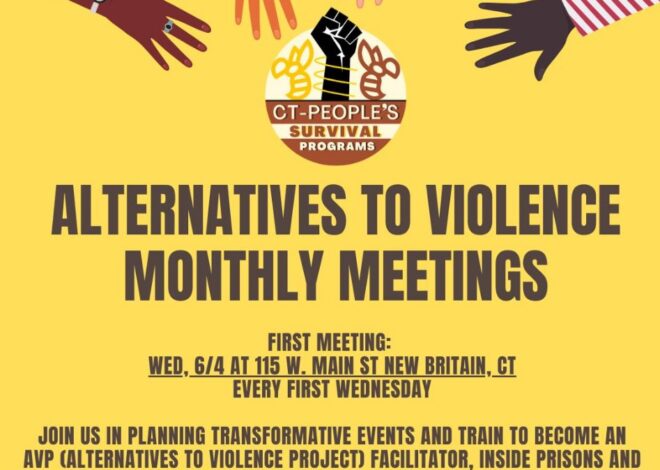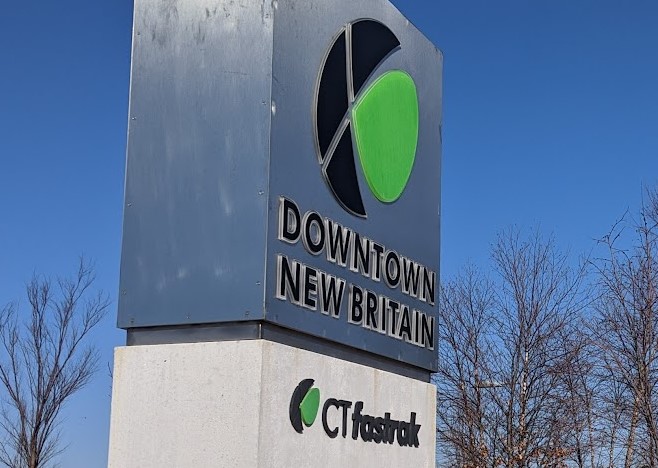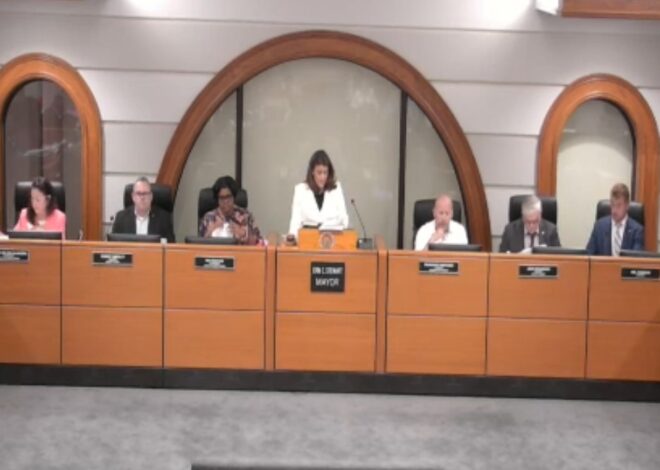Ald. Aram Ayalon (D-3) has officially requested that the New Britain Parks and Recreation Commission take up his City Council petition requesting, “a temporary halt of the building of a monument to commemorate Lithuanian militant, Adolfas Ramanauskas, until further research has been conducted to help confirm the history behind the man being memorialized.”
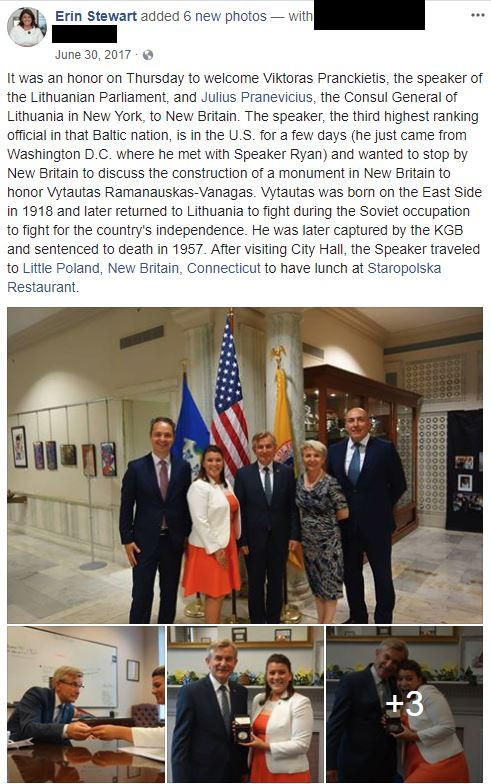 On December 15, 2017, the Commission had approved allowing the government of Lithuania to, “install a Lithuanian Monument in Walnut Hall Park,” but Ayalon is requesting that it reverse its decision.
On December 15, 2017, the Commission had approved allowing the government of Lithuania to, “install a Lithuanian Monument in Walnut Hall Park,” but Ayalon is requesting that it reverse its decision.
“Mr. Ramanauskas’ background indicates he was a leader of a paramilitary organization in a town in Lithuania in 1941 which was involved in killing Jews before even the Nazis took over,” said Ayalon. “While there is no evidence of him actually killing Jews, there is sufficient evidence not to create a monument for him in New Britain. Erecting a monument to him would be an offense to many Jews and non-Jews in Connecticut.”
Ramanauskas was born in New Britain to a Lithuanian family in 1918. He is widely considered a national hero in Lithuania because of his leadership in partisan fighting against the Soviet Union after World War II. He was captured by the KGB, was tortured and was executed in 1957. He was given numerous official honors after Lithuania became independent from the Soviet Union in 1990, and the Lithuanian parliament, called the Seimas, dedicated 2018 in his honor.
A message attributed to Republican Mayor Erin Stewart’s spokesperson says that the Lithuanian Consulate General of New York called the accusations against Ramanauskas, “total misinformation,” adding that, “Historians checked Vanagas bio thoroughly and there (sic) no evidence whatsoever about this participation in killings.”
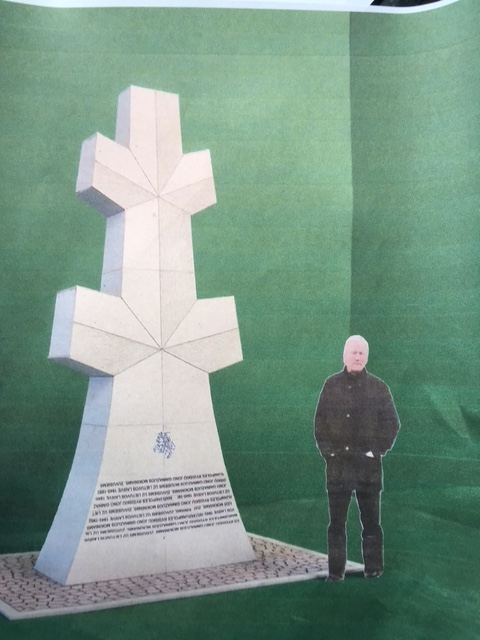
But the Simon Wiesenthal Center’s Director for Eastern Europe, Holocaust historian Dr. Efraim Zuroff, questioned the accuracy of the historical conclusions used by the Lithuanian government and urged the Seimas not to honor Ramanauskas. The Wiesenthal Center said that Ramanauskas was, “was the leader of the local Nazi collaborators in the town of Druskininkiai in southern Lithuania, who persecuted the Jews of that community during the initial weeks following the Nazi invasion of June 22, 1941.”
Ayalon added that, “The government of Lithuania has been involved on a continuous basis in suppressing holocaust involvement of Lithuanians. Research shows that 96% of all Lithuanian Jews perished in the Holocaust, higher percentage than any other country including Germany, because of local collaboration with the Nazis.”
Ayalon has obtained an image of the design of the proposed monument, which he says, “will be 11’32” tall (twice the height of an average person), 5’25” wide at the base and close to 2′ thick at the base and .65′ at the top.”
In January, 2018, the website, “Defending History,” edited by Professor Dovid Katz, questioned the planned New Britain monument to Ramanauskas, saying it sent a letter to Republican Mayor Erin Stewart, “to ask if her team was aware of the alleged pro-Nazi and Holocaust collaborator background of a Lithuanian militant, Adolfas Ramanauskas.” The website said,
Ramanauskas boasted in his own memoirs of leading a “partisan group” in late June 1941, and there is certainly nothing in that memoir expressing any regret over what those “partisan groups” did. They murdered and humiliated Jewish neighbors while blocking roads and circling towns to ensure that Jewish citizens could not escape the Nazi choke-hold.
In a June 30, 2017 post on Stewart’s Facebook page, she says that she met with, “Viktoras Pranckietis, the speaker of the Lithuanian Parliament,” who, “wanted to stop by New Britain to discuss the construction of a monument in New Britain to honor,” Ramanauskas.
The meeting of the Parks and Recreation Commission is planned for April 12, 2018.
Editor’s note (12/26/2018): The article was updated to correct that Stewart said that it was, specifically, the Speaker of the Lithuanian Parliament who wanted to discuss the monument. Her quote said that she also met with the Consul General of Lithuania in New York, but not that he had advocated for the monument, as the article previously said. Apologies for the error.

